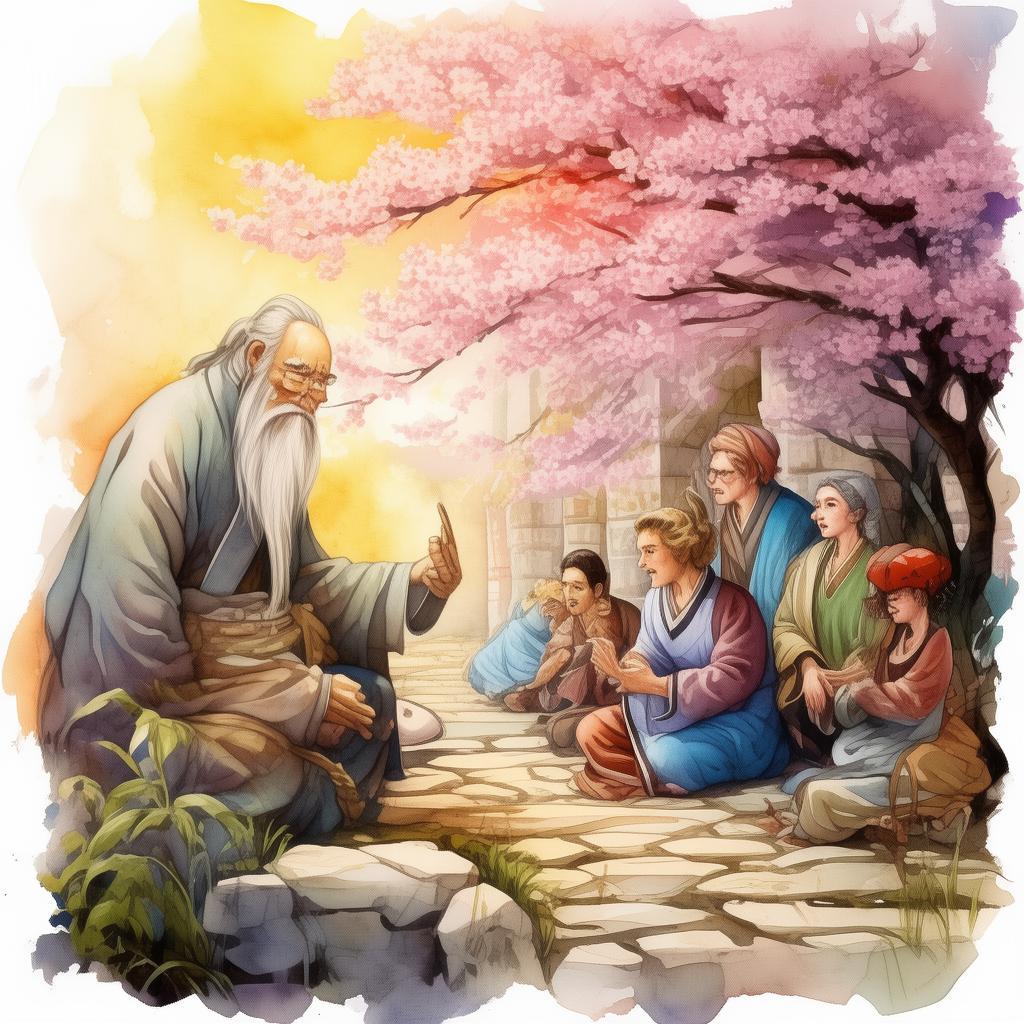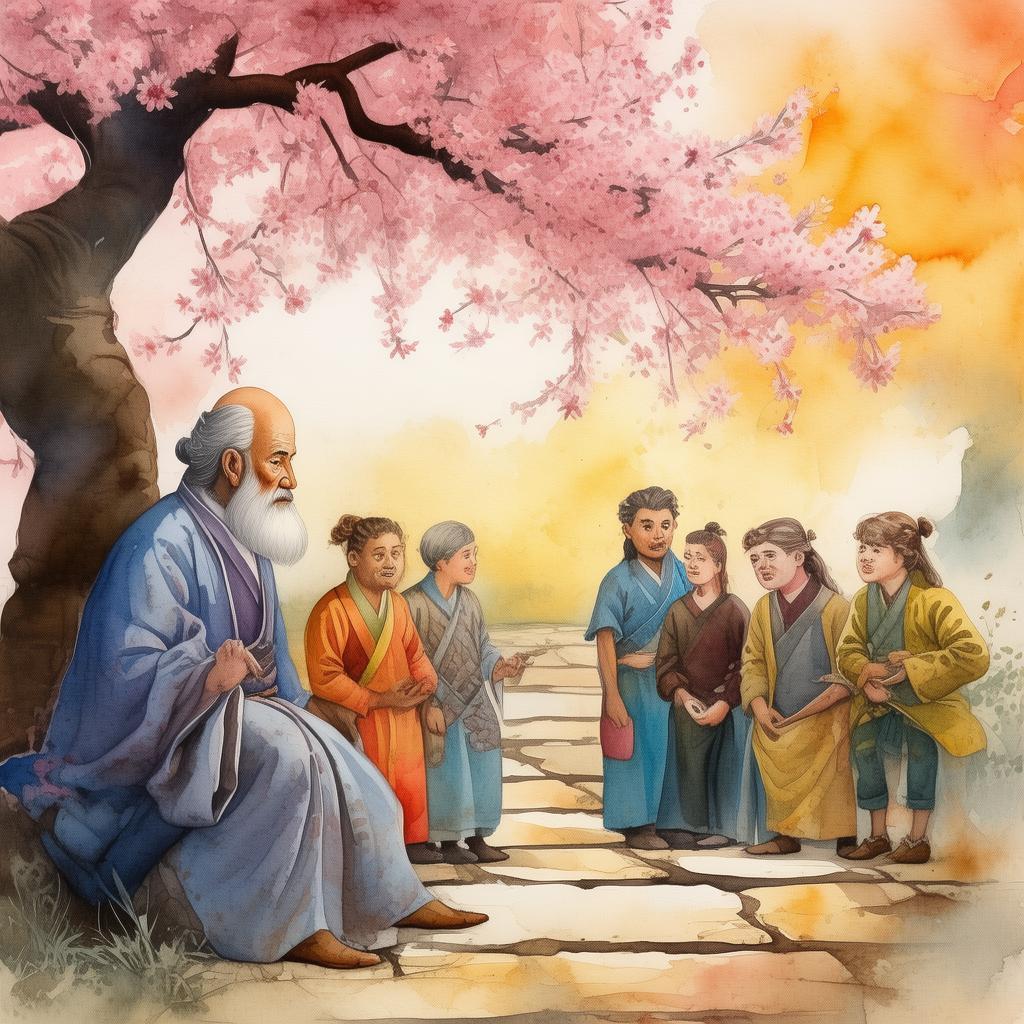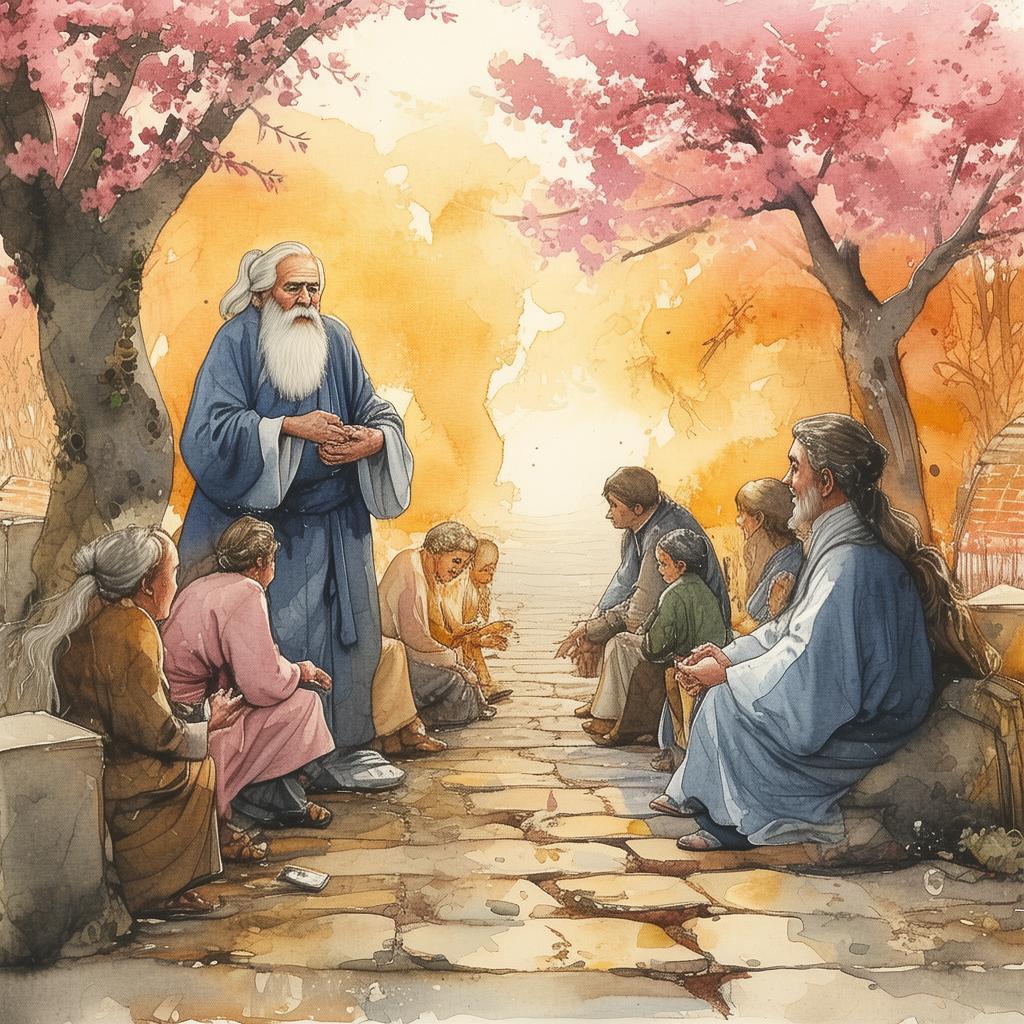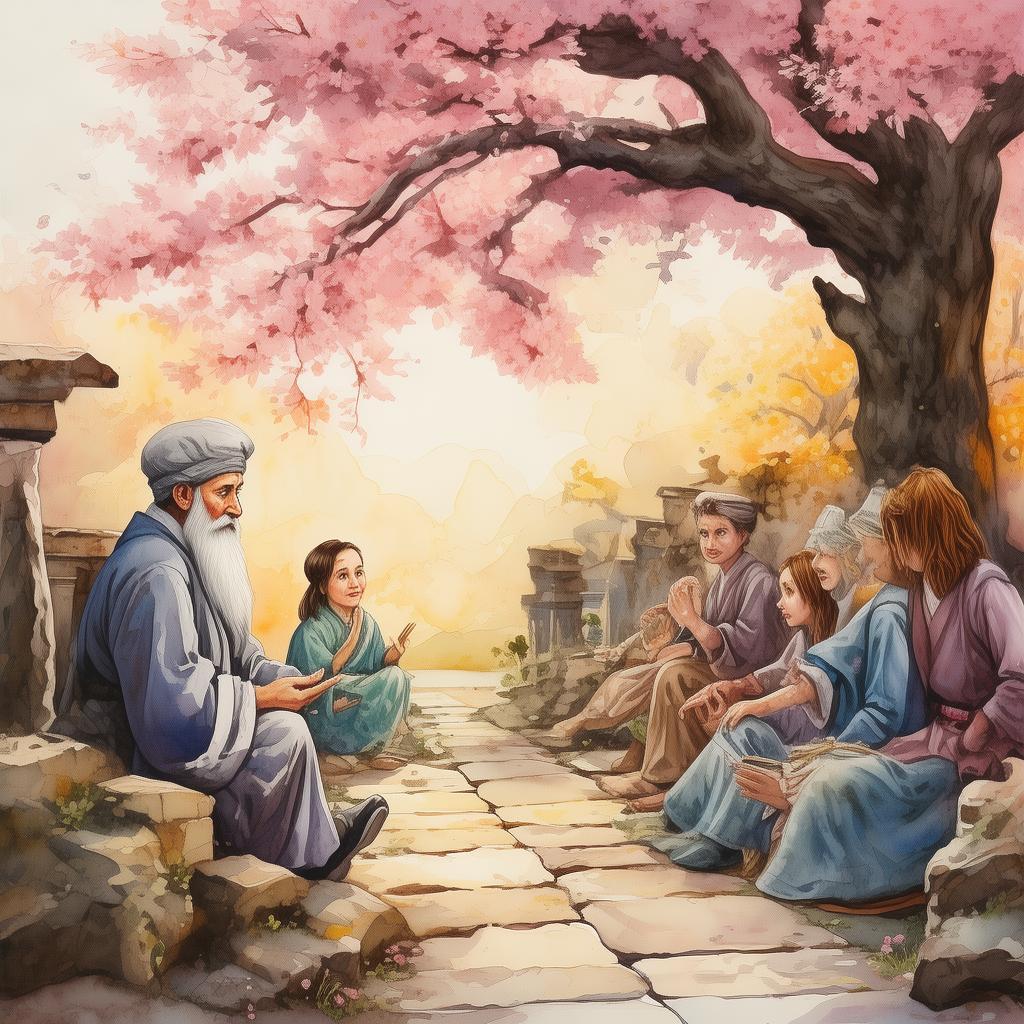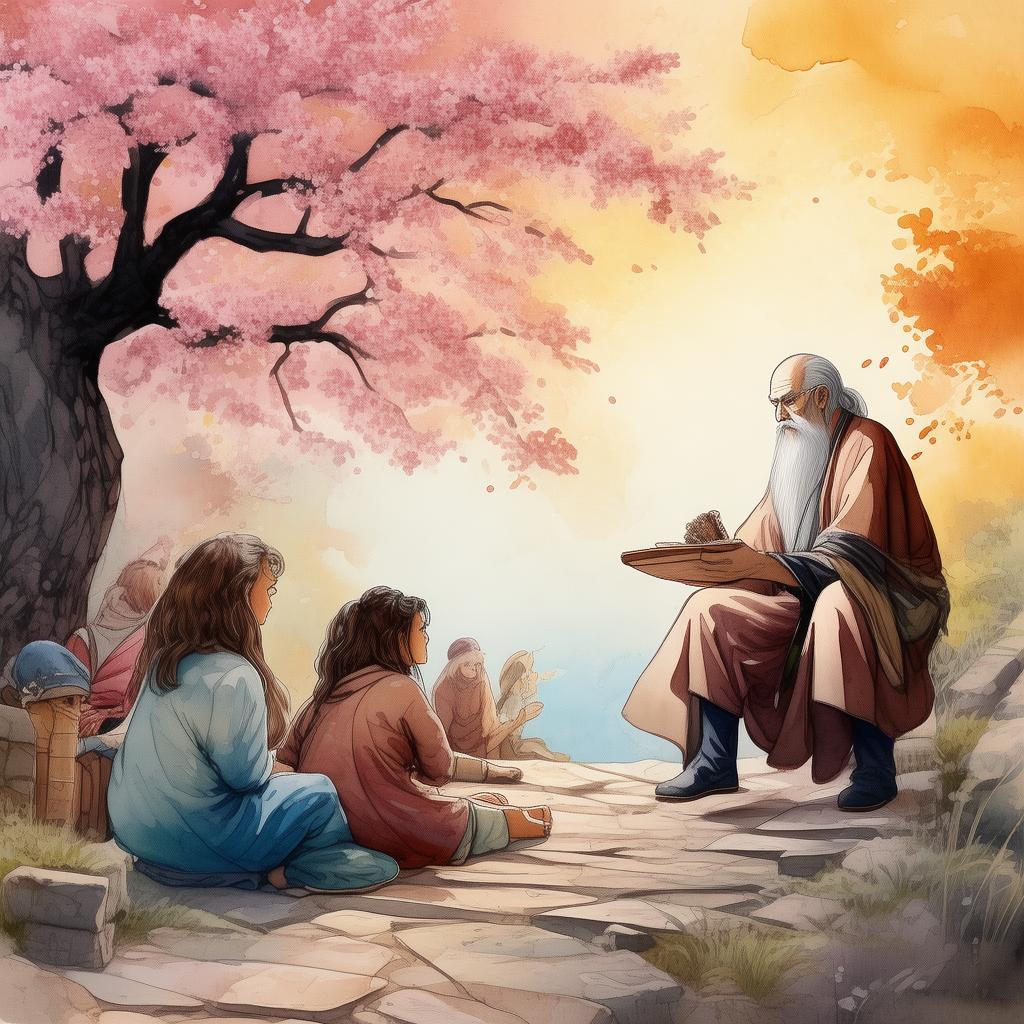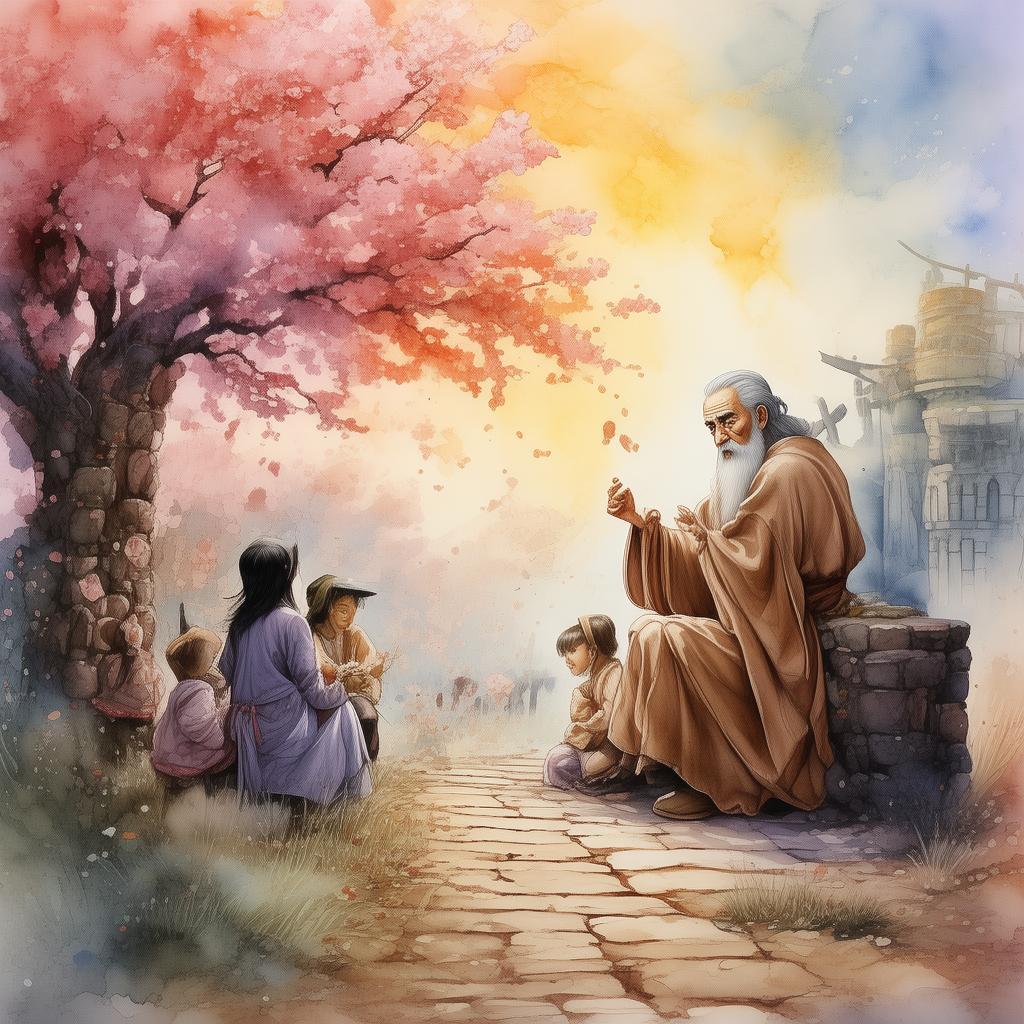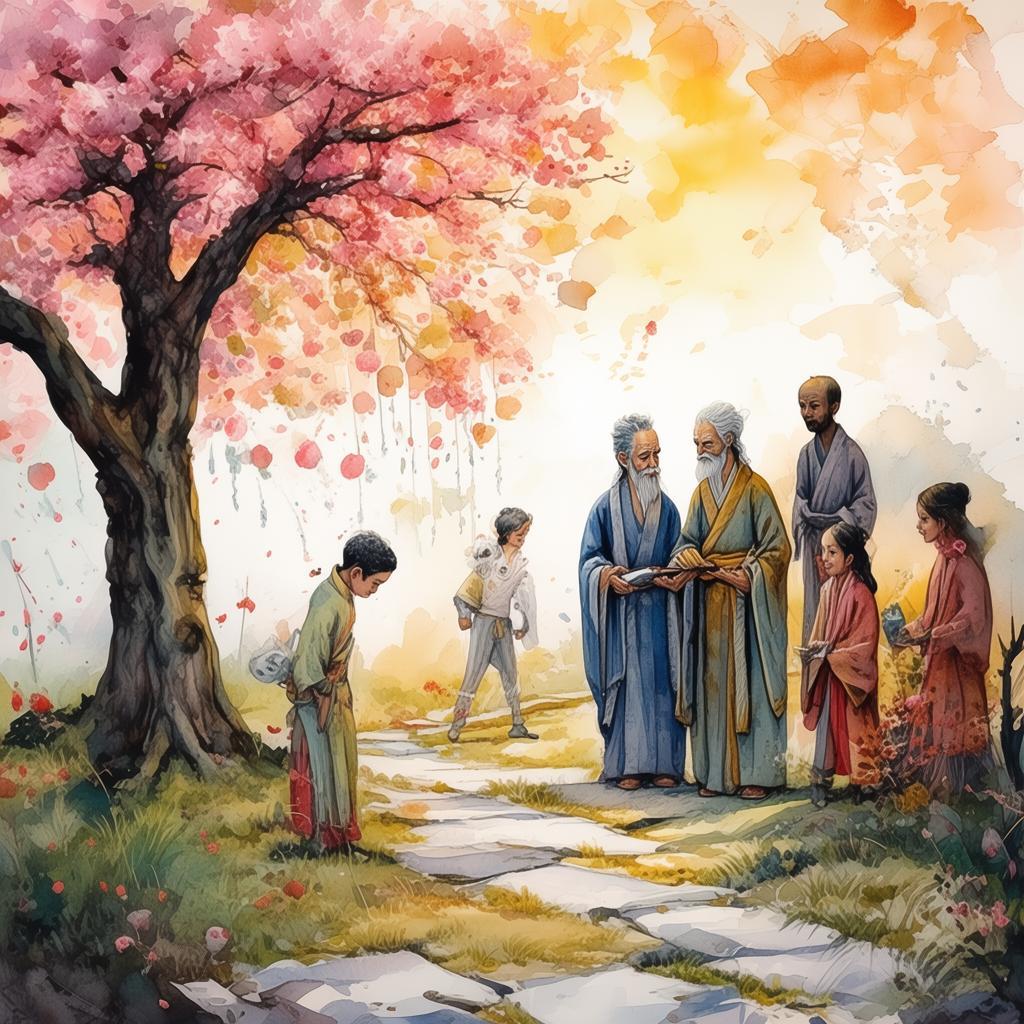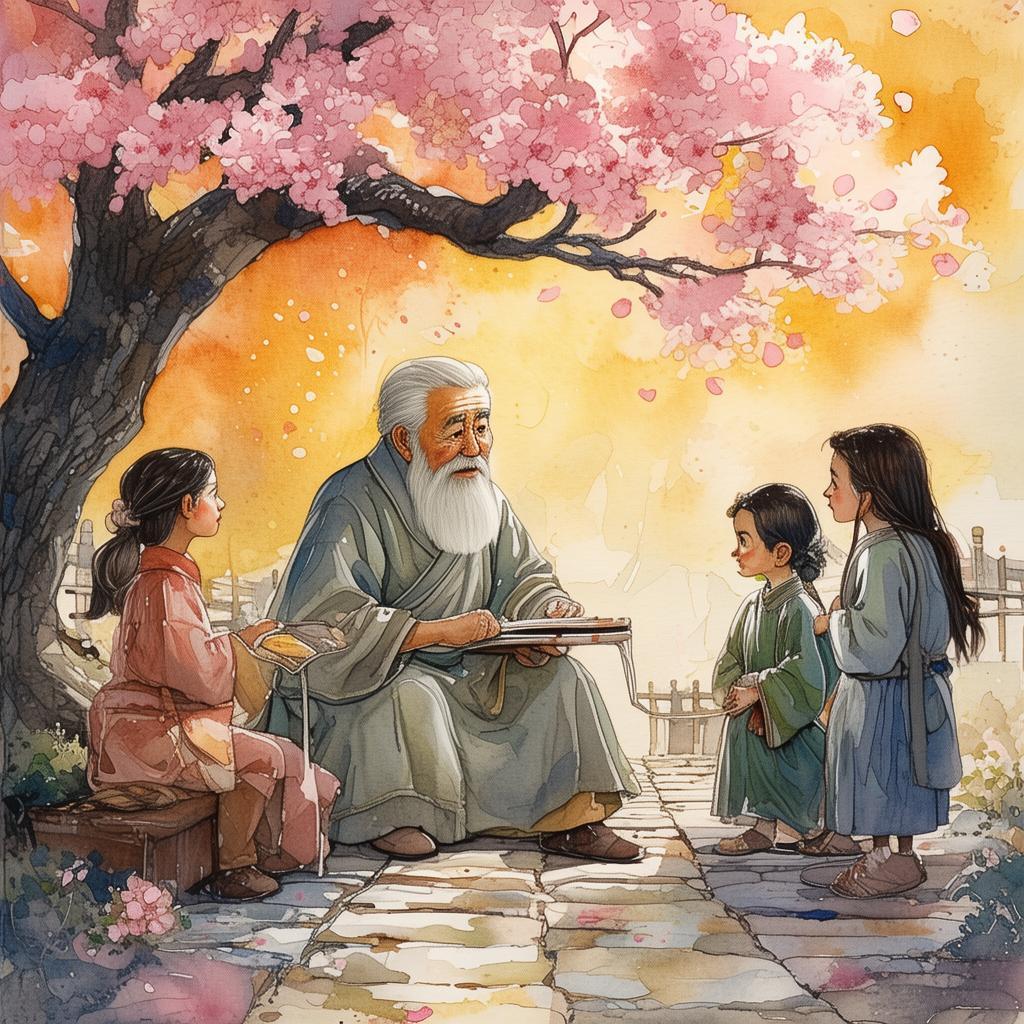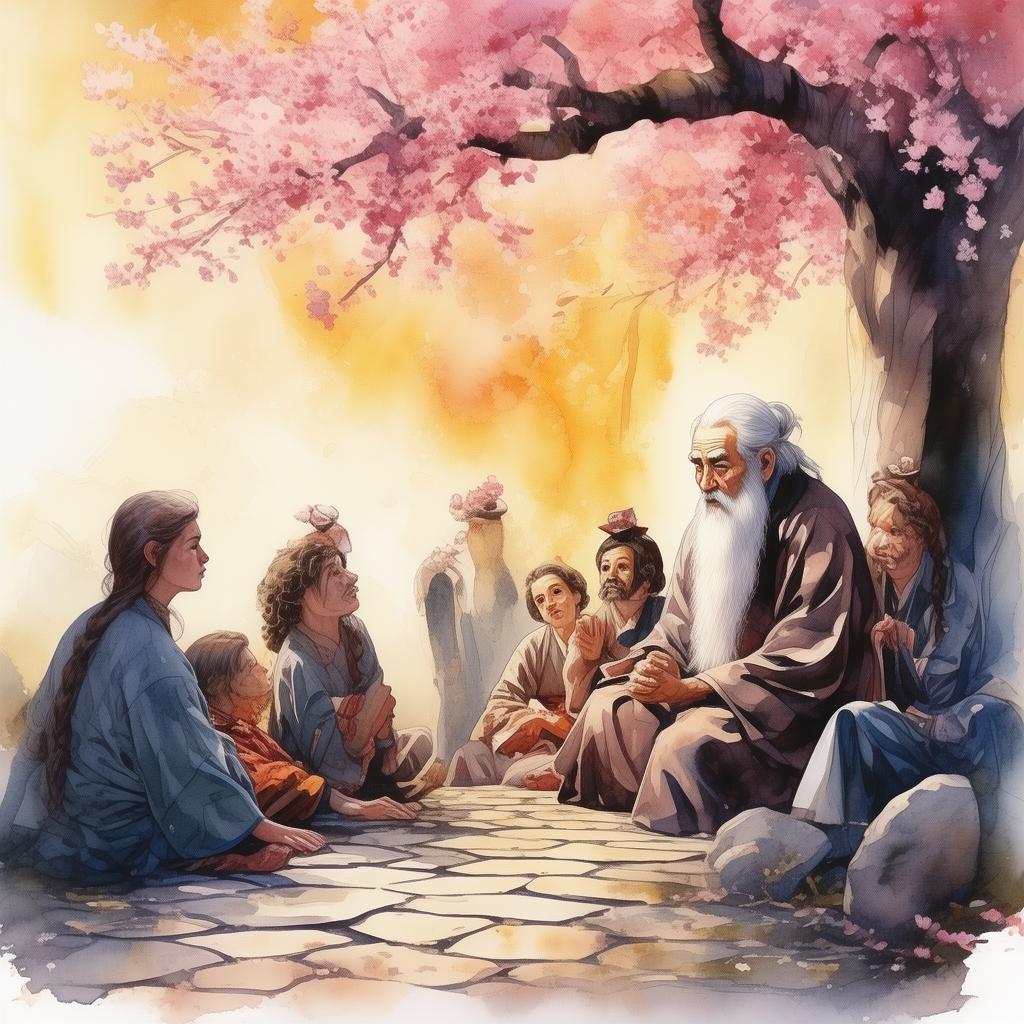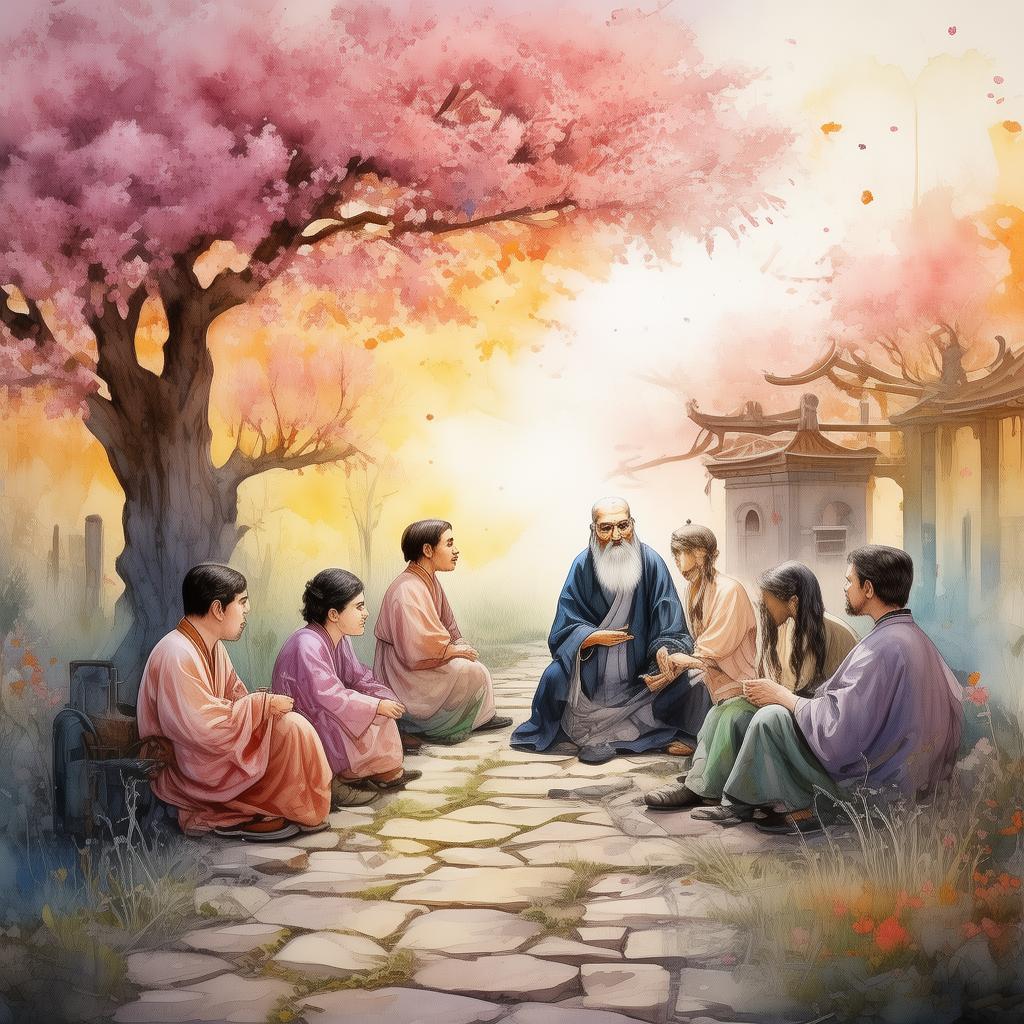Seven Sages in the Bamboo Grove
In the heart of ancient China, there lay a serene bamboo grove, a place untouched by the hustle and bustle of the world. It was here that the legendary Zen Master, Hui Neng, had once meditated and found enlightenment. Now, a group of seven sages from various walks of life had gathered in the grove, seeking the same divine revelation that had eluded them for years.
The first sage, a scholar, had spent his life studying ancient texts, seeking knowledge. He believed that the answers to all life's mysteries were hidden within the pages of these tomes. He approached the Zen Master, eager to discuss the meaning of the I Ching.
"Master Hui Neng," he began, "I have dedicated my life to understanding the wisdom of the ancients. Yet, I feel as though I am still in the dark. Can you enlighten me?"
The Zen Master looked at the scholar with a knowing smile and replied, "The I Ching is a book of change, not of static knowledge. Wisdom is not found in the pages, but in the understanding of the world around you."
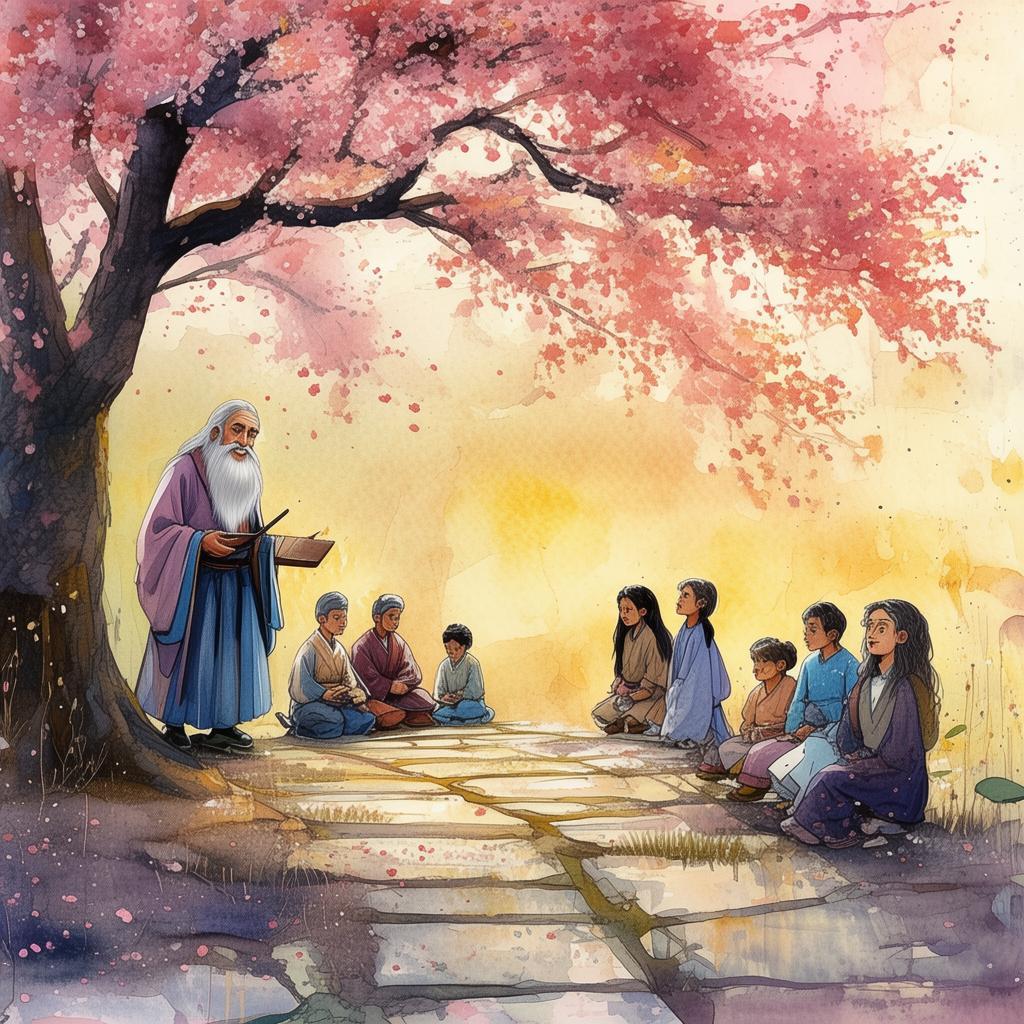
The scholar pondered the Master's words, but his mind remained cluttered with questions. He left the grove, feeling more confused than before.
Next was the warrior, a master of martial arts who had spent his days honing his skills. He believed that strength and power were the keys to enlightenment.
"Master Hui Neng," he declared, "I have trained for years to become the strongest warrior in the land. Can I achieve enlightenment through my strength?"
The Master, with a gentle demeanor, replied, "Strength is a useful tool, but it is not the essence of enlightenment. True power comes from within, not from the outside."
The warrior nodded, understanding that his quest for enlightenment must be different from his quest for power. He left the grove, his spirit unbroken.
The third sage was a simple farmer, whose life was filled with toil and labor. He sought enlightenment through the rhythm of the earth, the cycles of the seasons.
"Master Hui Neng," the farmer said, "I have worked the land for many years, and I have found that life is like the seasons. There is a time for planting, a time for harvesting, and a time for rest. Can you tell me how to find enlightenment in this cycle?"
The Master listened, then said, "The cycle of the seasons is a metaphor for the human condition. It teaches us to embrace change, to understand that life is ever-changing, and that enlightenment comes from embracing the present."
The farmer left the grove with a sense of peace, his mind at ease.
The fourth sage was a merchant, who had accumulated great wealth through his shrewd business sense. He sought enlightenment through the accumulation of wealth and power.
"Master Hui Neng," the merchant said, "I have amassed great wealth and power, but I am still not satisfied. Can you guide me to enlightenment?"
The Master, with a hint of compassion, answered, "Wealth and power are transient, and they do not lead to enlightenment. True enlightenment comes from the understanding that we are all interconnected, and that the pursuit of wealth should not be at the expense of others."
The merchant pondered the Master's words, realizing that his pursuit of wealth had been at the cost of his relationships. He left the grove, his spirit lighter.
The fifth sage was a musician, whose soul found solace in the melodies of the strings. He sought enlightenment through the harmony of the notes.
"Master Hui Neng," the musician said, "I have played music for many years, and I have found that harmony is the essence of beauty. Can music lead me to enlightenment?"
The Master nodded, "Music is a powerful medium that can touch the soul. However, true enlightenment comes from the understanding that harmony exists not only in sound, but also in the silence between notes."
The musician left the grove, his heart filled with gratitude for the Master's wisdom.
The sixth sage was an artist, whose passion was to capture the beauty of the world on canvas. He sought enlightenment through his art.
"Master Hui Neng," the artist said, "I have painted for many years, and I have found that every stroke of the brush is a reflection of my soul. Can art lead me to enlightenment?"
The Master, with a twinkle in his eye, replied, "Art is a powerful way to express oneself, but true enlightenment comes from the realization that the world is a reflection of our inner selves. Art can be a window to the soul, but it is not the soul itself."
The artist left the grove, his mind open to the possibilities of enlightenment.
Finally, the seventh sage was a monk, who had dedicated his life to the pursuit of spiritual truth. He sought enlightenment through the strict adherence to the monastic life.
"Master Hui Neng," the monk said, "I have lived a life of simplicity and discipline, and I have found that it has brought me closer to the divine. Can you guide me to a deeper level of enlightenment?"
The Master, with a serene smile, replied, "The monastic life is a path to enlightenment, but it is not the only path. True enlightenment comes from the understanding that all things are interconnected, and that the world is a reflection of our inner selves."
The monk, feeling a profound sense of peace, left the grove, his heart open to the vastness of the universe.
As the seven sages departed the bamboo grove, each carrying with them a piece of the Master's wisdom, they realized that enlightenment was not found in any one path, but in the understanding that all paths are interconnected. They had each found their own paradox to confront, and in doing so, they had taken a step closer to enlightenment.
✨ Original Statement ✨
All articles published on this website (including but not limited to text, images, videos, and other content) are original or authorized for reposting and are protected by relevant laws. Without the explicit written permission of this website, no individual or organization may copy, modify, repost, or use the content for commercial purposes.
If you need to quote or cooperate, please contact this site for authorization. We reserve the right to pursue legal responsibility for any unauthorized use.
Hereby declared.
